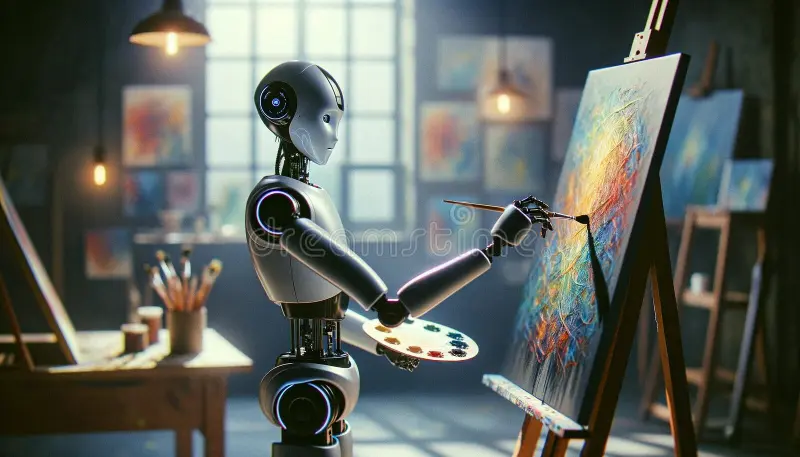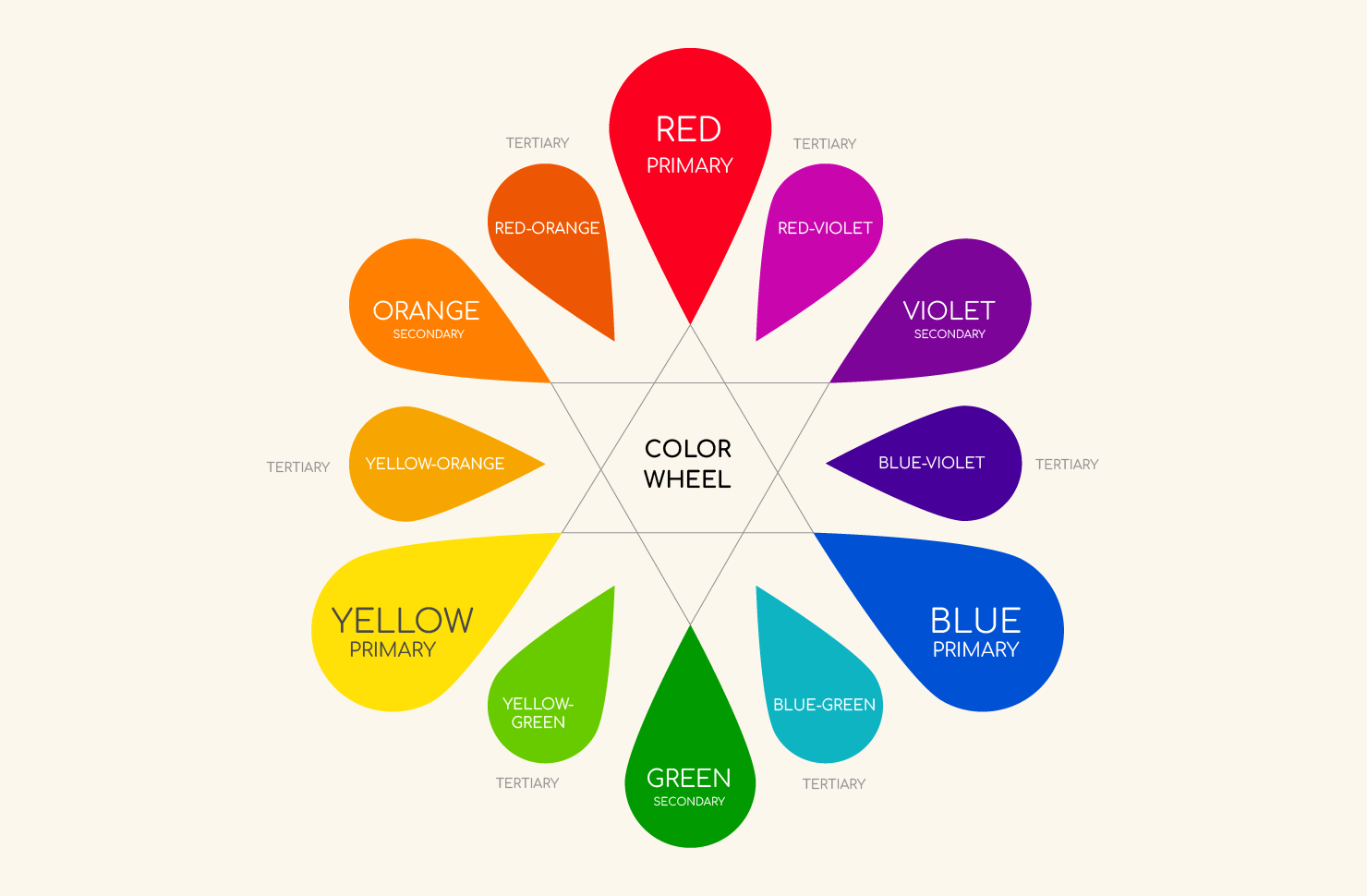The Latest Breakthroughs in Artificial Intelligence Transforming Industries
Introduction
Artificial Intelligence (AI) has evolved from a futuristic concept to a transformative force reshaping industries worldwide. In 2024, AI’s rapid advancements have revolutionized sectors such as healthcare, finance, manufacturing, and creative arts, enhancing efficiency, innovation, and decision-making processes. This article explores the most significant AI breakthroughs that are redefining the industrial landscape.
🧠 Generative AI: Revolutionizing Creativity and Automation
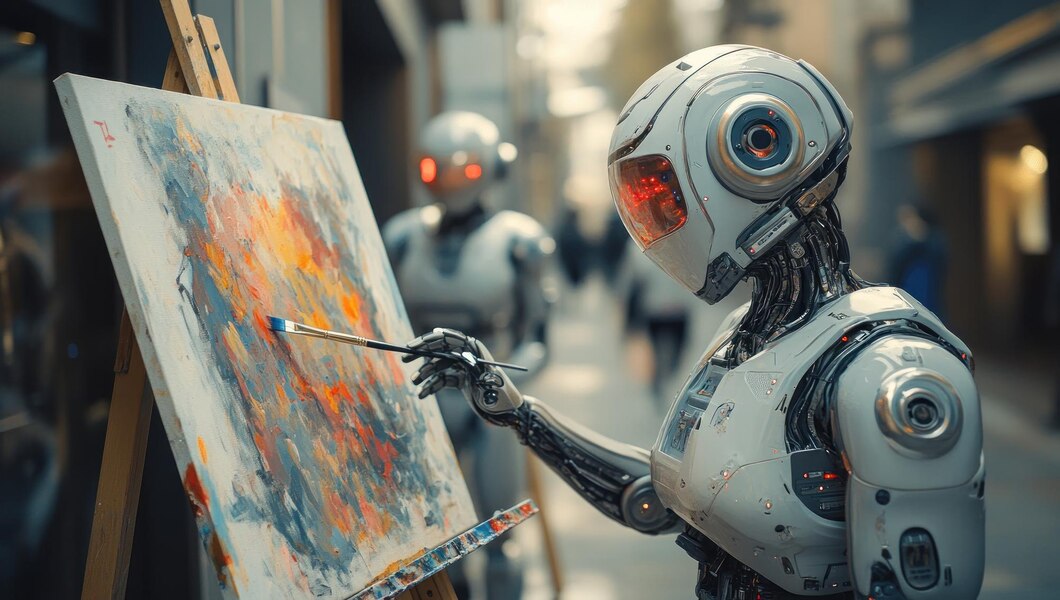 Generative AI, a subset of artificial intelligence, utilizes generative models to produce text, images, videos, and other data forms. These models learn patterns from training data to generate new content based on input prompts. The rise of transformer-based deep neural networks, particularly large language models (LLMs), has propelled generative AI into mainstream applications. Tools like ChatGPT, Copilot, and DALL-E have become integral in software development, healthcare, finance, entertainment, and more. While generative AI offers immense potential, it also raises ethical concerns regarding misinformation, job displacement, and intellectual property rights.
Generative AI, a subset of artificial intelligence, utilizes generative models to produce text, images, videos, and other data forms. These models learn patterns from training data to generate new content based on input prompts. The rise of transformer-based deep neural networks, particularly large language models (LLMs), has propelled generative AI into mainstream applications. Tools like ChatGPT, Copilot, and DALL-E have become integral in software development, healthcare, finance, entertainment, and more. While generative AI offers immense potential, it also raises ethical concerns regarding misinformation, job displacement, and intellectual property rights.
🏥 AI in Healthcare: Enhancing Diagnostics and Patient Care
 AI’s integration into healthcare has led to significant improvements in diagnostics and patient care. Machine learning models can now detect early signs of diseases, sometimes before symptoms manifest. For instance, a new AI model developed by AstraZeneca can predict the presence of certain diseases years in advance by analyzing medical data from large populations. Such advancements enable early interventions, personalized treatments, and improved patient outcomes.
AI’s integration into healthcare has led to significant improvements in diagnostics and patient care. Machine learning models can now detect early signs of diseases, sometimes before symptoms manifest. For instance, a new AI model developed by AstraZeneca can predict the presence of certain diseases years in advance by analyzing medical data from large populations. Such advancements enable early interventions, personalized treatments, and improved patient outcomes.
🏭 AI in Manufacturing: Streamlining Operations and Maintenance
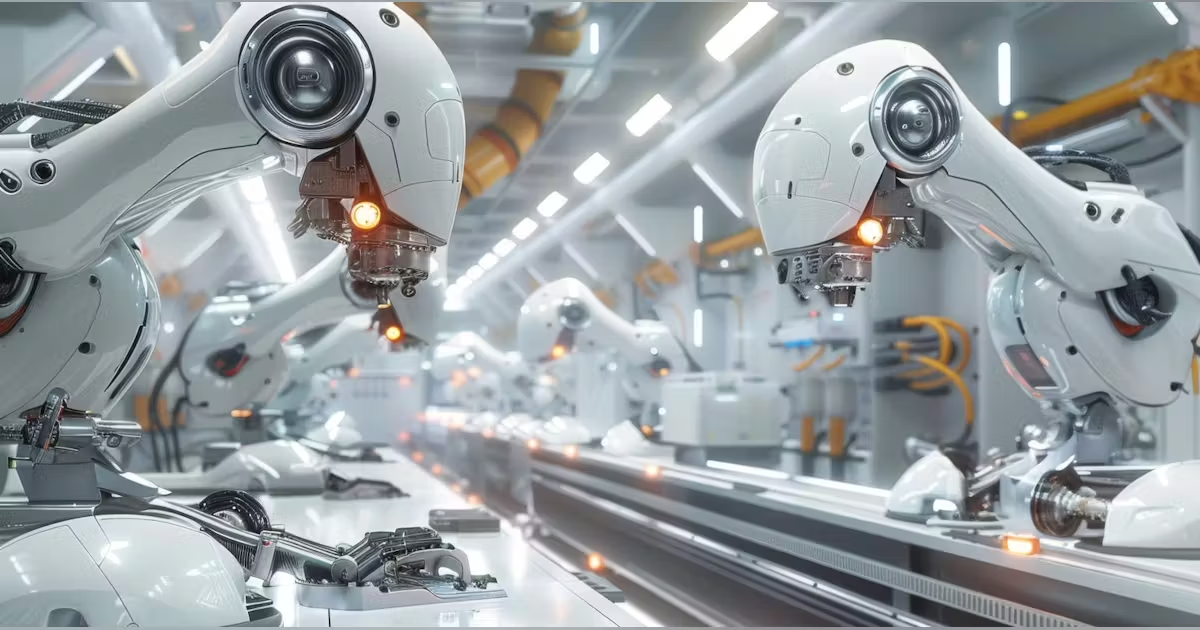
💰 AI in Finance: Transforming Risk Assessment and Trading
 The financial industry is leveraging AI to revolutionize risk assessment and trading strategies. Generative AI models assist in analyzing vast datasets to identify market trends and make informed investment decisions. For example, JPMorgan Chase developed “LOXM,” an AI tool that executes high-frequency trades autonomously, adapting to market volatility faster than human traders. These advancements lead to more efficient financial operations and better risk management.
The financial industry is leveraging AI to revolutionize risk assessment and trading strategies. Generative AI models assist in analyzing vast datasets to identify market trends and make informed investment decisions. For example, JPMorgan Chase developed “LOXM,” an AI tool that executes high-frequency trades autonomously, adapting to market volatility faster than human traders. These advancements lead to more efficient financial operations and better risk management.
🎨 AI in Creative Industries: Augmenting Human Creativity
 AI is making significant inroads into creative fields, augmenting human creativity rather than replacing it. Generative AI tools can assist artists, writers, and designers by generating ideas, drafting content, and even creating art pieces. While AI can produce impressive results, experts argue that it lacks the ability to create truly novel work, emphasizing the irreplaceable value of human creativity. The collaboration between AI and human creators is opening new avenues for innovation in the arts.
AI is making significant inroads into creative fields, augmenting human creativity rather than replacing it. Generative AI tools can assist artists, writers, and designers by generating ideas, drafting content, and even creating art pieces. While AI can produce impressive results, experts argue that it lacks the ability to create truly novel work, emphasizing the irreplaceable value of human creativity. The collaboration between AI and human creators is opening new avenues for innovation in the arts.
🧬 Living Intelligence: Merging AI with Biotechnology
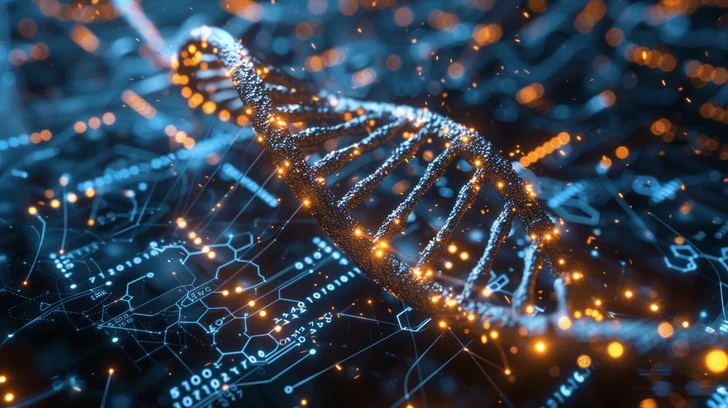 “Living Intelligence” represents the convergence of artificial intelligence, biotechnology, and advanced sensors. This interdisciplinary approach leads to systems capable of sensing, learning, adapting, and evolving. Applications include personalized education, empathetic customer service, and advanced healthcare solutions. Notable developments in this field involve biological computers like DishBrain, created using brain cells, and generative biology projects by companies such as Ginkgo Bioworks. These innovations are pushing the boundaries of what AI can achieve in conjunction with biological systems.
“Living Intelligence” represents the convergence of artificial intelligence, biotechnology, and advanced sensors. This interdisciplinary approach leads to systems capable of sensing, learning, adapting, and evolving. Applications include personalized education, empathetic customer service, and advanced healthcare solutions. Notable developments in this field involve biological computers like DishBrain, created using brain cells, and generative biology projects by companies such as Ginkgo Bioworks. These innovations are pushing the boundaries of what AI can achieve in conjunction with biological systems.
🤖 Agentic AI: Autonomous Systems in Real-World Applications
 Agentic AI refers to autonomous systems capable of making decisions and performing tasks without human intervention. These systems are being deployed across various industries, including manufacturing, finance, healthcare, and retail. For instance, Walmart utilizes AI chatbots to handle 80% of customer inquiries autonomously, improving efficiency and customer satisfaction. The adoption of agentic AI is transforming traditional workflows and enabling organizations to operate more dynamically.
Agentic AI refers to autonomous systems capable of making decisions and performing tasks without human intervention. These systems are being deployed across various industries, including manufacturing, finance, healthcare, and retail. For instance, Walmart utilizes AI chatbots to handle 80% of customer inquiries autonomously, improving efficiency and customer satisfaction. The adoption of agentic AI is transforming traditional workflows and enabling organizations to operate more dynamically.
Final Thoughts
The advancements in artificial intelligence throughout 2024 have demonstrated its profound impact across multiple industries. From enhancing healthcare diagnostics to revolutionizing creative processes, AI continues to be a catalyst for innovation and efficiency. As we move forward, the integration of AI into various sectors promises to unlock new possibilities, improve lives, and drive economic growth. Embracing these technologies responsibly and ethically will be crucial in shaping a future where AI benefits all aspects of society.
editor's pick
news via inbox
Nulla turp dis cursus. Integer liberos euismod pretium faucibua

